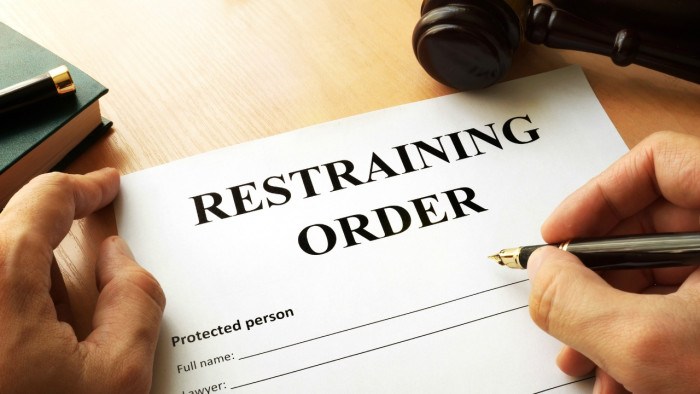Helping You Seek The Protection You Need

If you are a victim of domestic abuse, California offers a variety of restraining orders, which you can pursue to seek the protection you need to stay safe.
At Heidi D. Collier, APC, in Escondido, North San Diego County, our family law attorney is prepared to provide you with the strong legal support and compassionate guidance you need to obtain a restraining order. With more than two decades of experience and a track record of success, you can feel confident with our legal team on your side.
Reach out to our law office in Escondido today at 760-933-0503 to set up an initial consultation with a skilled family law attorney and California Bar-Certified Family Law Specialist with the California Board of Legal Specialization to discuss the details of your case.
Do I Qualify For A Domestic Violence Restraining Order?
A restraining order is a court order issued to prevent the recurrence of acts of abuse by a batterer. Under the Domestic Violence Prevention Act, abuse is defined as any of the following:
- Intentionally or recklessly causing or attempting to cause bodily injury
- Sexual assault
- Placing a person in reasonable apprehension of imminent serious bodily injury to that person or to another
- Engaging in any behavior that has been or could be illegal such as molesting, attacking, striking, stalking, threatening, battering, harassing, destroying personal property, contacting the other by mail, telephone, or otherwise, disturbing the peace of the other party
To obtain a Domestic Violence Restraining Order, you MUST have, or have had, a close personal relationship with the party you are asking to have restrained. Under the law, a relationship is defined as “close” if at least one of the following is true:
- You are married or were formerly married to the other party.
- You have or formerly had an engagement or dating relationship with the other party.
- You and the other party have a child or children together.
- You are related to the other party by blood, marriage or adoption, e.g., (mother, father, in-laws, siblings, adult children).
- You and the other party are living together, or formerly lived together, as members of a “household.”
The restraining order can include the following: restraints on personal conduct by the batterer; orders for the batterer to stay away from the victim’s home/work and/or children’s school; orders for the batterer to be removed from the residence; child custody and visitation and support orders and other miscellaneous orders.
Restraining Orders In California
When you apply for a restraining order, there are three types you may receive.
Here are the restraining orders available in California:
- Emergency Protective Order (EPO): A law enforcement officer may request this type of restraining order if there is reason to believe that an individual is in immediate danger. Additionally, an EPO is only enforceable for five to ten days and is designed to protect an individual while they apply for a temporary restraining
order. These EPOs are rare and are usually only give by law enforcement when they arrest the perpetrator for domestic violence.
- Temporary Restraining Order (TRO): These orders are normally issued by the judge, without notice to the perpetrator, based on the victim’s declaration under penalty of perjury describing the violence or threats of violence that constitute fear for the victim’s safety. Often, the minor children of the parties are included in the order. If granted, this type of order may last for up to 21 days, but due to the court closure at this time, the temporary restraining orders are lasting up to 90 days. The TRO must be personally served on the perpetrator of the domestic violence. We usually arrangements to have the sheriff serve this TRO on the perpetrator. The TRO will have the termination date on the order, which is an actual court date where the victim must prove his or her case by a preponderance of the evidence. The perpetrator has a right to be present at this hearing to prove his or her defense. At the conclusion of the hearing, the judge will decide if a permanent restraining
order is required under the law.
- Permanent Restraining Order: Despite its name, it is rare for a judge to issue a restraining order that does not have a termination date. The length of a domestic violence restraining order is normally from one to five years.
Schedule A Consultation With Our Experienced Attorney Today
If you are concerned for your safety, or if you have been served with a TRO, the legal team at Heidi D. Collier, APC, in Escondido North San Diego County can provide you with the exceptional representation you need during this difficult time. With our attorney on your side, you can rest assured you will receive the best results for your case.
Call us today at 760-933-0503 to set up a consultation with a California Bar-Certified Family Law Specialist with the California Board of Legal Specialization.

